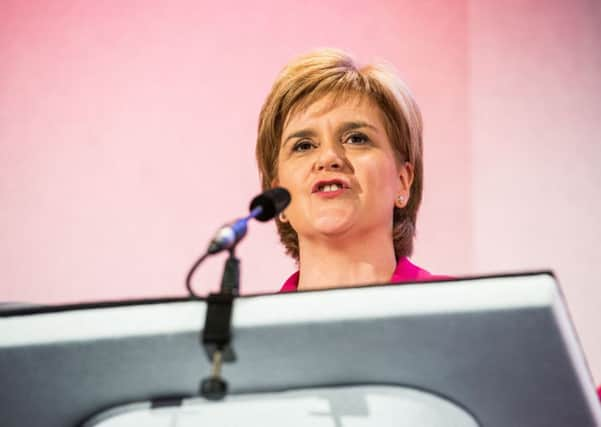Sturgeon told to ‘calm down’ over BBC by Tory MP


The comment made by backbencher Philip Davies is reminiscent of a remark made by Prime Minister David Cameron in 2011.
At a Question Time session at the Edinburgh International Television Festival, when the panel was discussing Scotland and the BBC, the morning after a speech by Ms Sturgeon, Mr Davies said: “I think people are getting rather, sort of, overwhelmed by this, and Nicola Sturgeon needs to just calm down a second, and remember people in Scotland did actually vote...”
Advertisement
Hide AdAdvertisement
Hide AdAt this point, the chair of the panel, Kirsty Wark, said that his “calm down” comment had “an echo of something that was said in the chamber”.
As the audience looked on and laughed, Mr Davies joked that maybe he should have said Ms Sturgeon - who was not at the event to hear what was said - should “steady on”. He took issue with having his choice of words highlighted, branding it “absolutely ridiculous”.
In 2011, Mr Cameron sparked outrage from Labour when he told the party’s Treasury spokeswoman Angela Eagle to ‘’calm down, dear’’ during an exchange at Prime Minister’s Questions in the Commons.
Mr Davies said Ms Sturgeon “needs to remember” that people in Scotland voted to remain part of the United Kingdom.
He said a consequence of that is British programmes, and added that the BBC is “more than capable” of providing the relevant news for all of the UK.
Last night, Ms Sturgeon demanded that Scotland must get a dedicated BBC television channel to counter the often “ill-informed” coverage of London-based journalists who have “totally failed” to cover constitutional change.
As a minimum, Ms Sturgeon called for BBC editors based within Scotland to have greater ability to influence UK reporting, a specific Scottish site for iPlayer programmes, Scottish Parliament oversight for the BBC in Scotland, greater use of Scottish opt-outs,and more powers for the BBC commissioners based in Scotland.
Ms Sturgeon insisted, during her Alternative MacTaggart lecture, she does not believe the BBC’s coverage of the referendum was biased, but said BBC network journalists flown in during the final stages of the campaign “sounded less than fully informed”.
Her proposals would make the next BBC charter, which is due to run until 2027, fit for purpose “for many years to come - whatever our future constitutional relationship may be”, she said.